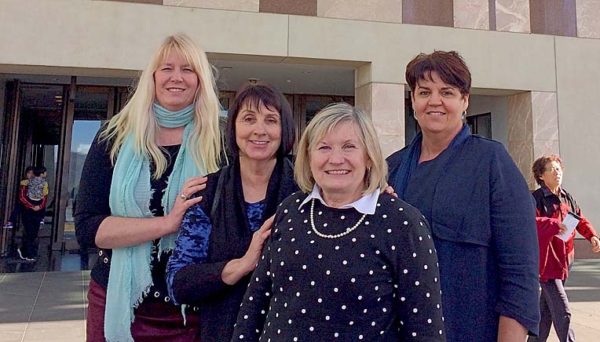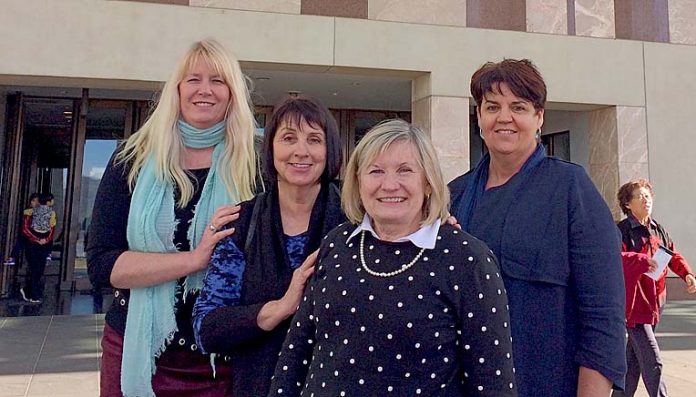
PROMINENT South East agricultural advocate Anne Daw has returned from lobbying a cross section of politicians in Canberra on policy reform to food and water security.
High on the agenda was gas exploration in the South East and in particular potentially toxic wastewater from petroleum activities.
Ms Daw was flanked by a number of interstate advocates who also met with key agricultural research experts.
The viability of farm biosecurity plans, ground and surface waters, legacy contamination from industry and why agriculture land and dependent groundwater systems are not matters of national environmental significance were raised.
Ms Daw claimed Australian beef exporters had already lost millions of dollars due to chemical contamination.
This included organochlorine residues found in beef in 1987, helix (chlorofluazuron) contamination impacting cattle in 1994 and endosulfan beef contamination in 1996.
In former years, Japan refused any Australian wool that had been sprayed with extremely toxic and now banned Lucijet.
“Environment protection agencies around Australia are not acting responsibly and need to be put under scrutiny,” Ms Daw said.
She said waste water from industry for irrigation appeared to have “minimalist” testing requirements.
“One example includes the shale gas exploration waste water that was spread on agricultural land on sandy soil near Penola,” Ms Daw said.
She revealed 300 contaminants, many highly toxic, were not included in the wastewater analysis.
“There has been a presence of thorium and uranium in conventional wells in the South East,” Ms Daw said.
“Mercury was detected in sludge and pond water at the Katnook gas plant, as well as being present in water in two wells in the Katnook gasfield area, which was above drinking water guidelines.
“This is totally unacceptable and there urgently needs to be federal oversight in place to call the EPAs in each state to account.”
Fellow advocate Debbie Nulty also raised concerns over South East petroleum and mining projects.
“If mining and petroleum activities are allowed to continue in the South East and around Australia, farmers will not be able to uphold their biosecurity compliance,” she said.
She said this included the Livestock Production Assurance Program, with new requirements being introduced in October.
“If farmland is the foundation of our economy, it should be a matter of priority that water quality and quantity that underpins this is protected,” Ms Nulty said.
She said groundwater sustained life.
“With its vulnerability to abuse and misuse under existing state and federal legislation, this resource should be accorded more protections,” she said.
“While bad government policy continues to have a negative impact on agribusiness, it is the privileged position that mining and some industry have over water priority and discharging of their wastewater that hurts farming the most.”
The group has been campaigning together for four years on policy reform to improve food and water security.








